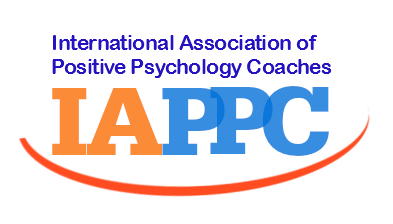
Here's an easy strategy tool that is a variation on the Ideal Self exercises popularized by positive psychology.
It's called the Letter from Your Ideal Future and I love sharing it with clients and using it, myself. Use the Letter whenever you or a coaching client has a big complex goal that will take some time, strategy, and focus to achieve.
Once the Letter is written, it can be returned to again and again for guidance and to see if you're on track, falling behind, or ahead of schedule. Having it down on paper helps make it seem real and doable and knowing which steps to take and when brings clarity and confidence. Seeing in black and white that your steps lead to success can stop you from second guessing yourself or believing naysayers who don't support your goals. (Pro tip: Identify any naysayers in your life and stop sharing your goals with them. ;-)
Ready? Grab some paper and a pen...
There is evidence that our brains change more when we write by hand rather than type so a handwritten Letter from Your Ideal Future may be more effective. But I've also typed Letters that were helpful so if you feel strongly resistant to writing longhand, go ahead and type.
Start with a strongly desired, heart-felt goal.
Your goal needs to be something you intrinsically value, not something you should want or that someone else wants. No one has to see or approve of your letter but you so choose a goal that makes your heart sing.
How to find a great goal? Take one deep delicious breath and close your eyes. Think about all the projects you could do and notice which one lights you up the most. That's the one. Trust it.
Now think realistically how long it may take for you to reach your goal. Literally pick a date. That's how you start your letter. Put that future date at the top of the page.
On the next line, write, "Dear Me..."
Paragraph 1: After Dear Me, write to yourself about your success. Write in detail as if it is already the date at the top of your page and you have fully achieved your heartfelt goal. Tell yourself what it is like now that you have achieved success and everything has gone as well as it possibly could. Focus especially on how good it feels now that you've reached this goal. This should be an enjoyable process. Really feel it. Feeling it will help you achieve it. Some questions to ask yourself might include: How I am different now that I've achieved this? What I have learned along the way? Who did I have to become? What's possible now? How will I celebrate my success? What do other people have to say and how do they treat me now? (Only include positives in this paragraph. If anything negative comes up, that's to be handled proactively in the months preceding the date you've achieved your goal, to help you succeed. More on that below. This way, your strategy writes itself.)
Paragraph 2: Tell yourself how you did it. Let's say your achievement date is one year from now. In this next paragraph, tell yourself what you did in the first six months. (If your achievement date is sooner or later, the amount of time will differ but I'll write these instructions based on a one-year goal.) List ten things you did in the first six months of working toward this goal. You can add details later. Include anything negative that came up in Paragraph 1. Decide how you will proactively handle those potential problems. Sometimes your steps will include getting training, or more information, or assistance from others. Sometimes it will include setting up systems and structures to make the rest of the project easier. Sometimes it will include better self care since no one can achieve their best goals when they aren't at their best. Sometimes it'll be about improving, repairing, or eliminating what could hold you back. Design your environment to support your success.
Paragraph 3: Now tell yourself what you did in the first three months. This is a slightly shorter list, maybe eight items long. Choose steps that will help set you up for the steps in Paragraph 2.
Paragraph 4: Next tell yourself what you did in the first month. This might be just six items. Again, choose steps that set you up for success with latter steps.
Paragraph 5: Tell yourself what you did in the first week. This will only be two or three steps. You're just getting started on your journey to success.
Paragraph 6: Now tell yourself the one step you need to take TODAY. Often, this will be clear after you've written all the other steps and sometimes it's surprising and surprisingly easy to start. Take that step. You're on your way now!
Paragraph 7: Finally, tell yourself how proud you are that you followed through, that you didn't anticipate everything that needed doing, but that was okay because you had a clear strategy that provided a framework for success. Add some details about your celebration here as well.
There you have it! Your roadmap to success!
This is a powerful tool that you can customize as needed. For instance, you can use it at the start of a new year to list a few high-value goals and track your progress throughout the year. I love going back to my letters and discovering I've already completed so many steps!
If you want more great tools, join the Certified Positive Psychology Coach Program and/or find a coach here who will help you be your very best!




















